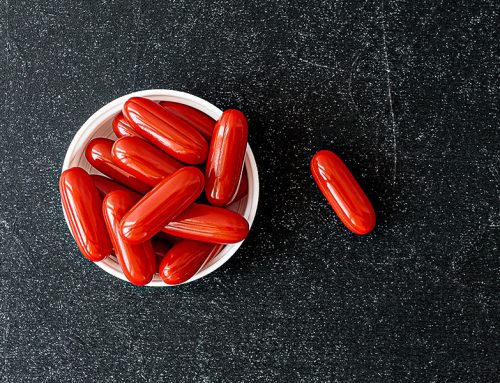Coenzyme Q10 is called, variously, ubiquinone, when it is in its naturally occurring oxidized form, or ubiquinol, when it is in its reduced form (more about the different forms in another article).
Q10 is a fat-soluble substance that naturally occurs with some variations in almost all living beings that use aerobic respiration to produce energy. It is a substance that is produced in the human body in the same biological pathway that produces cholesterol.
Q10 Research Results
Today, from research results, we know several important things about the human body’s synthesis of Coenzyme Q10.
We now know:
- That the body’s ability to produce Q10 declines with advancing age
- That the use of statins to inhibit the production of cholesterol in the liver also inhibits the body’s production of Coenzyme Q10
- That Coenzyme Q10 plays an essential role in the energy production process in all of the cells of the body, and, mostly importantly, perhaps, in the energy production process in heart muscle cells
- That it is practically impossible, even with a healthy and varied diet, to get enough Coenzyme Q10 to replace the Q10 that the aging body no longer produces
Q10’s Role as an Antioxidant
In addition to its vital role in cellular energy production – one might say that insufficient availability of Coenzyme Q10 in the cells results in limited energy production – Coenzyme Q10 also plays an important role as an antioxidant neutralizing harmful free radicals and preventing some of the damage that they do, which is damage that leads to degeneration of the body tissues and organs.
So, to sum up, as we get into our 40s and beyond, we need to recognize that our bodies are no longer producing as much Coenzyme Q10 as we need for energy production (no wonder we feel fatigued more easily) and as we need for fighting free radicals. We also need to realize that we cannot get enough Q10 in our diets.
Q10 preparations vary
Therefore, the important question is going to be: where can we get a Q10 preparation that is absorbed in great part by the body? We need to make sure that we purchase a preparation for which there is documented research showing that taking the preparation results in elevated Q10 levels in blood serum and, ideally, in body tissues.
First of all, we can eliminate any Q10 products that are available as a powder or a tablet. I cannot find any convincing bio-availability studies for these products. The only Q10 preparations that give a good bio-availability are the preparations that come in capsules with the Q10 in oil-based solutions. Remember, Q10 itself is a fat-soluble substance.
Q10 in the Myoqinon formulation
Please note, for example, that Myoqinon, the one that was used in the Q-SYMBIO chronic heart failure clinical trial reported in the Journal of the American College of Cardiology (lead author: Svend Aage Mortensen), is a unique formulation with documented bio-availability as well as documented safety. The Q-SYMBIO study produced statistically significant outcomes with regard to Major Adverse Cardiovascular Events, cardiovascular mortality, all-cause mortality, and required hospitalizations.
Please refer to the Q-SYMBIO website for full details on this study.
The very same Q10 preparation (called Bio-Quinone Gold) was also used in a clinical trial in central Sweden with healthy elderly Swedish citizens aged 70 to 88. In this randomized placebo-controlled double-blind clinical trial, known as the KiSel-10 study, 443 participants were given combined supplementation of selenium and coenzyme Q10 or a placebo.
There was a significant reduction (p = 0.015) of cardiovascular mortality in the Q10 treatment group as compared with the placebo group (5.9% vs. 12.6%, a relative reduction of 53%). This would seem to be a logical outcome, given that elderly people produce less Q10 and need Q10 from an outside source to provide the substance to the heart muscle cells.
In the past few years, increasingly, there have been claims on the Web that the reduced form of Coenzyme Q10, the ubiquinol form, has a better absorption than the normal natural form, the ubiquinone form. I would like to address those claims in a later article.










Leave A Comment